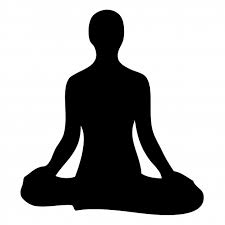The Importance And Purpose Of Stress
The Importance and Purpose of Stress
You hear a lot about the wrong things associated with stress these days. Too much stress causes many problems that are bad for our minds and our body. It's essentially a symptom of our world, with all of its pressures. Of course, stress is an essential natural, physiological response, despite the issues  it causes when we experience stress in abundance.
it causes when we experience stress in abundance.
Perhaps the biggest issue with stress isn't necessarily the source of stress but rather the way that you respond to that stress. Let's take the remainder of this article to discuss stress in more detail—why we experience it, how it benefits us, and how it can harm us.
Stress is complex. It's not only a psychological feeling, it represents the physiological way that our bodies respond to stressors. Although physical and psychological stress may seem very different on the outside, our bodies react to them similarly.
What is Stress?
Stress is a feeling you get when you consciously or subconsciously feel unable to meet obligations and expectations. It's a feeling you get when something inside tells you you can't do something.
What Are the Different Kinds of Stress?
There are different forms of stress. Some people experience chronic stress, meaning that they are plagued by such feelings that leave them drained. Sometimes, stress is episodic, meaning it comes and goes due to specific psychological, social, or physiological cues. Acute stress is also a problem that some people experience. Acute stress is when things that elicit a stress response have a more significant effect on an individual than they should.
Everyone has their stress profile and reasons why they get stressed. Stress can be categorized into two forms: Extrinsic and Intrinsic stress. Extrinsic stress results from factors outside of yourself, like when you have a big project or presentation due at work or you're flirting with someone you're attracted to. Intrinsic stress is stress that is the result of things going on inside of your own head.
Perhaps you've built walls inside yourself that you must overcome to be social, for example. Or maybe you find yourself questioning your self-worth. These are forms of intrinsic stress.
Your feelings of stress represent physiological changes that are going on inside your body to help you deal with stressors. These physiological changes are associated with what is known as the fight-or-flight response.
When you feel stress, your sympathetic nervous system activates. The sympathetic nervous system prepares your body to deal with immediate issues, whether you are risking life and limb or feeling anxiety about an upcoming exam.
When you feel stressed, your body responds in a system-wide manner. When stress activates the sympathetic nervous system, your body experiences a veritable flood of Hormone and Neurological responses, all designed to help you overcome that stress.
What Are the Phases of Stress Response?
The stress response can be divided into three different phases:
Stage One: Alarm
The first stress response is an alarm. An alarm represents the recognition of a perceived threat, which initially activates the sympathetic nervous system response. During this phase of the stress response, the brain sends signals to systems all throughout the body to go on high alert. This response is mediated by the Hypothalamus, which is considered the “control center” of the human brain.
An essential part of the alarm phase is the activation of the adrenal glands, which produce cortisol and other stress hormones.
As these signals circulate through the body, they encourage various changes. For example, stress primes your circulatory system to send oxygen to the  skeletal muscles and brain, speeding up the lungs and heart. At the same time, your body's baseline functions, such as digestion, slow down.
skeletal muscles and brain, speeding up the lungs and heart. At the same time, your body's baseline functions, such as digestion, slow down.
This is your body's way of getting you out of a threatening situation, temporarily sacrificing your normal function to get you out of harm's way or stir you to take action. Your body also sends energy in the form of glucose to these organs, getting you ready to put it all on the line, if necessary.
The issue with how the body prepares for stress is that there isn't really a meaningful mechanism for the brain to differentiate between different forms of stress, whether that stress is menial or life-threatening, minor or significant.
Stress developed as an evolutionary response, and it is present in all complex animals. The fact that physical and emotional stress is handled in the exact same way by the body is a hold-over from our ancestors. Therefore, the body's response to psychological stress in the modern world can be overkill, to say the least. This is why many people feel overwhelmed by stress, and we've all likely felt this way at some point or another.
Stage Two: Resistance
The second phase of stress is resistance. During this phase, your body has prepared itself for a response, giving you the tools to respond to stress. Your brain has altered your physiological priorities for action. During the resistance phase, the Hypothalamus initiates another Hormone Cascade designed to amplify and enhance your response to stress further. During this period, the Hypothalamus secretes three essential hormones: Thyrotrophic-Releasing Hormone, Growth Hormone-Releasing Hormone, and Corticotrophin-Releasing Hormone.
This phase of the stress response is designed to keep your body adapted to ongoing stress. This second phase heightens the body's preparedness in various ways, all designed to protect you in a high-pressure situation. For example, the body starts catabolizing proteins and fatty acids into glucose. This provides energy to your muscles, even if you don't have carbohydrate energy immediately available. Also, during the resistance phase, the body increases salt and water retention to protect you in case you start bleeding or are seriously hurt.
Another aspect of the stress response is that the brain suppresses pain sensations so one can endure a stressful situation alive and in one piece. This is why, for example, you will likely underestimate your pain levels until after the damage is done if you get in a fight or a car crash.
Again, these changes are designed to keep us alive and help us win fights or run away, but we also respond with stress in many situations far more benign.
Stage Three: Exhaustive
The third phase of stress is exhaustive. This is the body's response to long bouts of stress or chronic stress, which are different than a stressor that can be dealt with quickly. This form of stress can be most detrimental to health and wellness because the body functions optimally when it only activates sympathetic responses when needed, rather than leaving stress “on” all the time.
Exhaustive Stress results from extended periods of excessively high pressure and alertness which inhibit health and wellness. Exhaustive Stress will eventually lead to a condition known as Adrenal Fatigue, in which the body is no longer able to produce enough stress hormones, and this also drains the body of the resources necessary to produce other hormones such as HGH and Testosterone, which are associated with healthy and optimal function.
Exhaustive Stress can be divided into two categories, although the body will respond similarly. Some people experience this form of stress for an explicit reason. For example, military personnel can experience Exhaustive Stress as a result of long-term high-stakes situations which necessitate peak performance.
reason. For example, military personnel can experience Exhaustive Stress as a result of long-term high-stakes situations which necessitate peak performance.
The second category belongs to ordinary people who experience exhaustive levels of stress due to their body's chronic over-response to everyday stressors or psychological stress. For example, people with PTSD or high levels of anxiety can be so on edge that their bodies spend an overwhelming amount of time in a stress phase, putting undue pressure on the body.
Also, many people experience exhaustive stress due to issues such as chronic pain. Stress is psychological and physical; the body responds to physical pain with a sympathetic stress response.
Exhaustive Stress weakens the immune system, as the stress response protects one against immediate threats. The catabolic processes that create protein energy also eat away at muscle tissue, depleting strength and reducing energy levels over time. The body also loses its ability to produce hormones effectively, which can actually leave you more susceptible to pain over time. Exhaustive stress is dangerous and significantly increases mortality risk from various sources if not addressed appropriately.
Healthy Stress Associated with Enhanced Performance
Although too much stress is obviously very bad, experiencing just enough stress can be highly beneficial, which explains why human beings still experience stress.
Stress is designed to be a temporary response to “get you into the game.” It gets your body and mind ready to take action. If you don't experience any stress, you aren't ready to do what you need to do, but if you have too much stress, you lose everything beneficial about stress and only experience the negative aspects of stress.
Of course, psychological stress is more multifaceted than we've described in this article, but this provides a rough sketch of how stress “works.” There are many different types of stressors, and different people obviously get stressed about different things. For example, some people experience stress due to complex tasks, whereas others experience stress due to more straightforward, repetitive tasks. Some people experience existential anxiety, whereas others experience excess stress due to social interactions.
Stress is Not Always Tangible
As a result of both the complexities of modern life and the complexities of the human mind, not all stress is the result of events in our day-to-day lives. Unlike most animals, we have an internal dialog and internal hopes and dreams. Our stress can actually be the result of things going on inside our heads rather than our response to the world around us and our preconditions.
This is one of the reasons human beings are so susceptible to stress—our brains and our culture have evolved in a way that can potentially cause our natural, evolutionary response to stress to work against us.
How to Deal With Stress
Part of dealing with stress is learning about what causes it and how our bodies and minds respond to it as a single unit. Many patients can learn to deal with stress through cognitive behavioral therapy.
Others benefit from physical activities that relieve stress, such as exercise or yoga. Because the body and mind both respond to physiological stress  response, taking steps to relax the body can relax the mind. The reverse is also true; meditation and cognitive therapy can relieve physical stress symptoms.
response, taking steps to relax the body can relax the mind. The reverse is also true; meditation and cognitive therapy can relieve physical stress symptoms.
Hormone Imbalance also contributes to stress and is a side effect of Adrenal Fatigue and Exhaustive Stress (which, in many ways, are one and the same). Excess physical and psychological stress causes the body to favor hormones that benefit the individual immediately while limiting the body's ability to produce hormones associated with homeostasis and balance, such as Growth Hormone and Testosterone. Long-term, extreme stress drains the body's ability to effectively produce all of these hormones, leaving the patient in an even more dire state.
Manage Stress to Improve Health and Wellness
Controlling stress is one of the critical factors of living a healthy life. If you are having trouble with stress and your personal efforts aren't enough, it would benefit you greatly to visit a life coach, psychologist, or even a fitness, nutrition, or wellness specialist. There's no reason to let yourself be eaten alive by stress when there are things you can do and people you can talk to help you. Learn to master your stress for a happier and healthier life!
- 0001 Xylitol is a Natural, Plant-Sourced and Low-Calorie Sweetener [Last Updated On: January 8th, 2025] [Originally Added On: January 12th, 2021]
- 0002 The Secret Behind Keeping the Weight Off for Good -- No More Losing and Gaining Cycles! [Last Updated On: January 17th, 2025] [Originally Added On: January 13th, 2021]
- 0003 The Cognitive Benefits of Starting a CoQ10 (Coenzyme Q10) Supplement Regimen [Last Updated On: January 12th, 2025] [Originally Added On: January 14th, 2021]
- 0004 It's Time to Understand Why Vitamin C is Critical for Our Health and Longevity! [Last Updated On: January 10th, 2025] [Originally Added On: January 15th, 2021]
- 0005 Snoring is the Most Common Early Symptom of Sleep Apnea -- Do You Suffer From It? [Last Updated On: January 11th, 2025] [Originally Added On: January 16th, 2021]
- 0006 Vitamin-d Longevity Vitamin [Last Updated On: January 2nd, 2025] [Originally Added On: January 17th, 2021]
- 0007 Twenty Simple Weight Loss Tips That Can Change Your Life [Last Updated On: November 14th, 2025] [Originally Added On: January 18th, 2021]
- 0008 Twelve Ways To Control Cravings [Last Updated On: February 22nd, 2025] [Originally Added On: January 19th, 2021]
- 0009 The Truth About The Zone Diet [Last Updated On: November 13th, 2025] [Originally Added On: January 20th, 2021]
- 0010 The Truth About The Schwarzbein Principle [Last Updated On: November 12th, 2025] [Originally Added On: January 21st, 2021]
- 0011 The Truth About The Realage Diet [Last Updated On: November 11th, 2025] [Originally Added On: January 22nd, 2021]
- 0012 The Truth About The Origin Diet [Last Updated On: November 10th, 2025] [Originally Added On: January 23rd, 2021]
- 0013 The Truth About The Eat Right, Live Longer Diet -- Nourishing Food Equals Increased Longevity [Last Updated On: January 31st, 2025] [Originally Added On: January 24th, 2021]
- 0014 The Essential Roles Magnesium Plays For Our Energy Levels, Skin Youthfulness and Mental Health [Last Updated On: January 4th, 2025] [Originally Added On: January 25th, 2021]
- 0015 The Real Skinny On Vitamin B12. What It Can And Cannot Do For You [Last Updated On: March 23rd, 2025] [Originally Added On: January 26th, 2021]
- 0016 The Ideal Balanced Diet The Reality Of Healthy Eating [Last Updated On: November 9th, 2025] [Originally Added On: January 28th, 2021]
- 0017 The Effects Of Cortisol On The Body [Last Updated On: April 27th, 2025] [Originally Added On: January 29th, 2021]
- 0018 Sixteen Common Foods That Increase The Cancer Risk [Last Updated On: November 8th, 2025] [Originally Added On: January 30th, 2021]
- 0019 Should You Consider Intermittent Fasting? [Last Updated On: October 19th, 2025] [Originally Added On: January 31st, 2021]
- 0020 Can Caloric Restriction Help You Lose Weight And Live Longer? [Last Updated On: October 18th, 2025] [Originally Added On: February 1st, 2021]
- 0021 How Does Poor Sleep Rob Vitality And Health? [Last Updated On: October 17th, 2025] [Originally Added On: February 2nd, 2021]
- 0022 Nine More Natural Ways To Relieve Anxiety [Last Updated On: October 16th, 2025] [Originally Added On: February 3rd, 2021]
- 0023 Metabolism Boosting Tips For Losing Weight And Feeling Great [Last Updated On: October 13th, 2025] [Originally Added On: February 4th, 2021]
- 0024 Juicing Pros And Cons [Last Updated On: March 22nd, 2025] [Originally Added On: February 5th, 2021]
- 0025 Insomnia Guide [Last Updated On: October 12th, 2025] [Originally Added On: February 6th, 2021]
- 0026 How To Lose Weight With Human Growth Hormone [Last Updated On: October 11th, 2025] [Originally Added On: February 7th, 2021]
- 0027 How Safe Is Monosodium Glutamate AKA Msg? [Last Updated On: October 14th, 2025] [Originally Added On: February 8th, 2021]
- 0028 How Is Sleep Apnea Diagnosed And Treated [Last Updated On: October 9th, 2025] [Originally Added On: February 9th, 2021]
- 0029 Hidden Sources Of Sugar In Common Foods [Last Updated On: October 8th, 2025] [Originally Added On: February 10th, 2021]
- 0030 How Would You Like to Potentially Add 14 Healthy and Youthful Years to Your Life Span? [Last Updated On: October 10th, 2025] [Originally Added On: February 11th, 2021]
- 0031 Four Reasons Why Healthy Sleep Encourages Weight Loss [Last Updated On: October 7th, 2025] [Originally Added On: February 12th, 2021]
- 0032 Omega-3 Fatty Acid Facts And How They Relate To Hormone Replacement Therapy [Last Updated On: April 24th, 2025] [Originally Added On: February 14th, 2021]
- 0033 Drink Right To Live Well [Last Updated On: October 6th, 2025] [Originally Added On: February 15th, 2021]
- 0034 Consumers Of Processed Meat Put Themselves At Risk [Last Updated On: October 5th, 2025] [Originally Added On: February 16th, 2021]
- 0035 Comparing The Same Mass Of Muscle And Fat [Last Updated On: February 19th, 2025] [Originally Added On: February 17th, 2021]
- 0036 Watermelon Health Food? The Benefits Of L-citrulline And Watermelon [Last Updated On: October 4th, 2025] [Originally Added On: February 18th, 2021]
- 0037 Alcohol Appears To Impact Sperm Quality [Last Updated On: October 3rd, 2025] [Originally Added On: February 19th, 2021]
- 0038 The Benefits of Selenium - Should You Take a Selenium Supplement? [Last Updated On: February 9th, 2025] [Originally Added On: April 8th, 2021]
- 0039 Selenium and its Impact on Your Health and Hormones [Last Updated On: March 3rd, 2025] [Originally Added On: April 8th, 2021]
- 0040 Scientifically Proven Benefits Of Turmeric The Indian Spice [Last Updated On: March 18th, 2025] [Originally Added On: April 27th, 2021]
- 0041 Natural Remedies for Heartburn or Acid Reflux [Last Updated On: February 18th, 2025] [Originally Added On: May 22nd, 2021]
- 0042 What the Heck Is a Raisin, Anyway and Why Would I Want to Eat One? [Last Updated On: May 18th, 2025] [Originally Added On: June 10th, 2021]
- 0043 Fat-Focused Diet May Help Boost Testosterone [Last Updated On: February 17th, 2025] [Originally Added On: June 10th, 2021]
- 0044 Chia Seeds: More Than Just a Fad [Last Updated On: April 11th, 2025] [Originally Added On: June 24th, 2021]
- 0045 Intermittent Fasting Boosts Growth Hormone, and Improves Cognitive Health [Last Updated On: March 4th, 2025] [Originally Added On: May 2nd, 2022]
- 0046 Growth Hormone, Nutrition, and Diet Affect Longevity [Last Updated On: February 14th, 2025] [Originally Added On: May 6th, 2022]
- 0047 How Your Health is Affected by Brown and White Fat [Last Updated On: February 14th, 2025] [Originally Added On: May 17th, 2022]
- 0048 Tesamorelin Boosts HGH Levels and Burns Belly Fat [Last Updated On: February 14th, 2025] [Originally Added On: May 21st, 2022]
- 0049 Build Muscle With Tofu - Don't Fear Soy [Last Updated On: November 7th, 2025] [Originally Added On: July 12th, 2022]
- 0050 Balancing HGH Levels with Weekly Sogroya [Last Updated On: November 5th, 2025] [Originally Added On: September 1st, 2022]
- 0051 Pecans Are Amazing [Last Updated On: February 19th, 2025] [Originally Added On: November 22nd, 2022]
- 0052 The Benefits of Fenugreek [Last Updated On: September 5th, 2025] [Originally Added On: November 24th, 2022]
- 0053 The Foods To Eat To Increase Stem Cells [Last Updated On: March 6th, 2025] [Originally Added On: December 7th, 2022]
- 0054 The Versatility of Pecans [Last Updated On: February 19th, 2025] [Originally Added On: February 9th, 2025]
- 0055 Understanding The Concept: A Pound Of Muscle Vs. A Pound Of Fat [Last Updated On: February 19th, 2025] [Originally Added On: February 11th, 2025]
- 0056 The Aging Enigma: Unravelling the Web of Human Growth Hormone Decline [Last Updated On: February 17th, 2025] [Originally Added On: February 12th, 2025]
- 0057 Rekindling the Flame: How a Fat-Friendly Diet Can Ignite Testosterone Levels [Last Updated On: February 14th, 2025] [Originally Added On: February 13th, 2025]
- 0058 Unlocking Your Inner Fountain of Youth: The Magic Elixir of HGH Injections for Women [Last Updated On: February 17th, 2025] [Originally Added On: February 14th, 2025]
- 0059 Effective Strategies for Controlling Cravings [Last Updated On: February 17th, 2025] [Originally Added On: February 17th, 2025]
- 0060 Overview of Hormone Replacement Therapy and the Role of Intermittent Fasting [Last Updated On: February 22nd, 2025] [Originally Added On: February 22nd, 2025]
- 0061 Understanding the Power of Stem Cells [Last Updated On: February 24th, 2025] [Originally Added On: February 24th, 2025]
- 0062 The Role of Selenium in Health and Hormones [Last Updated On: February 26th, 2025] [Originally Added On: February 26th, 2025]
Word Count: 1913






